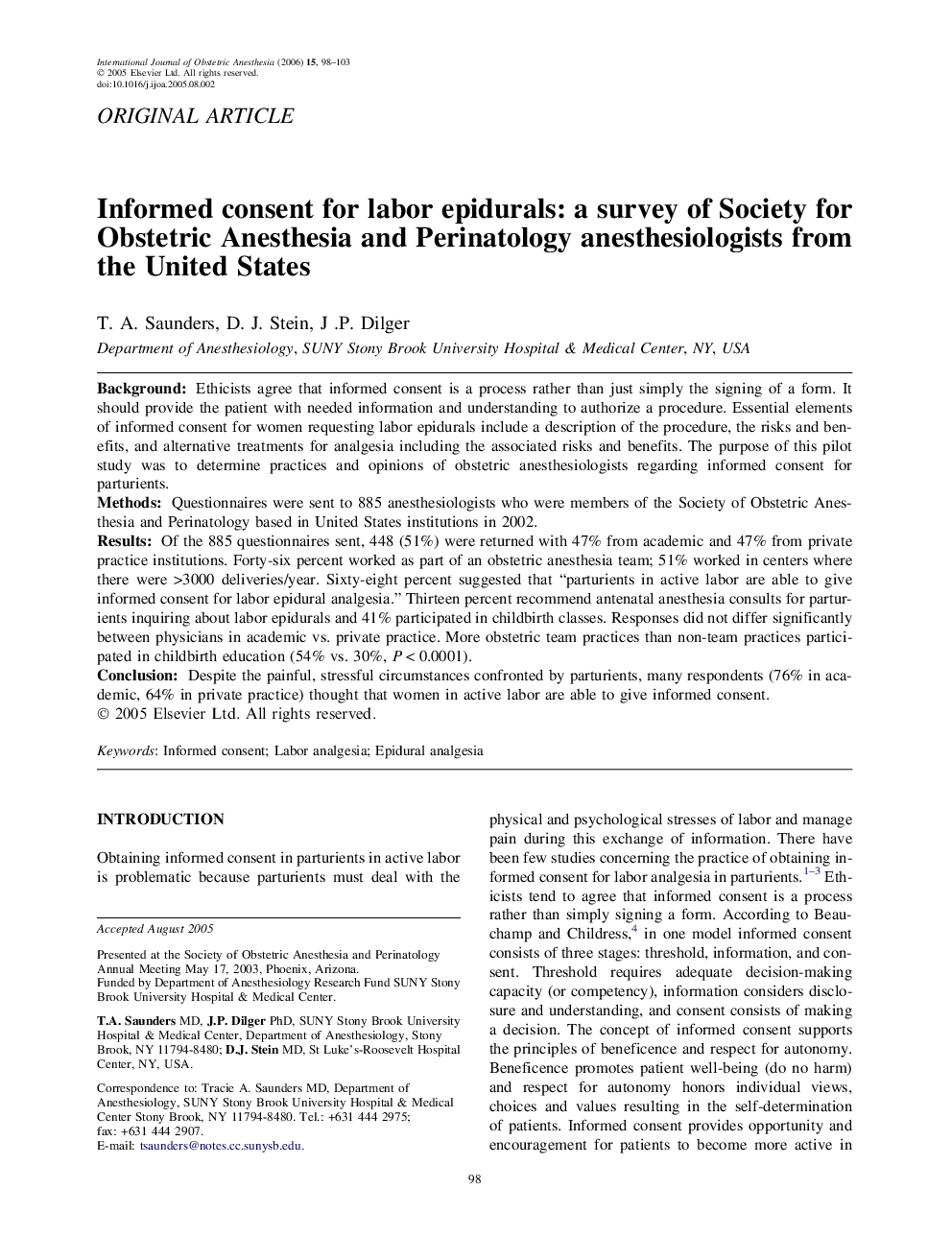| Article ID | Journal | Published Year | Pages | File Type |
|---|---|---|---|---|
| 2758659 | International Journal of Obstetric Anesthesia | 2006 | 6 Pages |
BackgroundEthicists agree that informed consent is a process rather than just simply the signing of a form. It should provide the patient with needed information and understanding to authorize a procedure. Essential elements of informed consent for women requesting labor epidurals include a description of the procedure, the risks and benefits, and alternative treatments for analgesia including the associated risks and benefits. The purpose of this pilot study was to determine practices and opinions of obstetric anesthesiologists regarding informed consent for parturients.MethodsQuestionnaires were sent to 885 anesthesiologists who were members of the Society of Obstetric Anesthesia and Perinatology based in United States institutions in 2002.ResultsOf the 885 questionnaires sent, 448 (51%) were returned with 47% from academic and 47% from private practice institutions. Forty-six percent worked as part of an obstetric anesthesia team; 51% worked in centers where there were >3000 deliveries/year. Sixty-eight percent suggested that “parturients in active labor are able to give informed consent for labor epidural analgesia.” Thirteen percent recommend antenatal anesthesia consults for parturients inquiring about labor epidurals and 41% participated in childbirth classes. Responses did not differ significantly between physicians in academic vs. private practice. More obstetric team practices than non-team practices participated in childbirth education (54% vs. 30%, P < 0.0001).ConclusionDespite the painful, stressful circumstances confronted by parturients, many respondents (76% in academic, 64% in private practice) thought that women in active labor are able to give informed consent.
